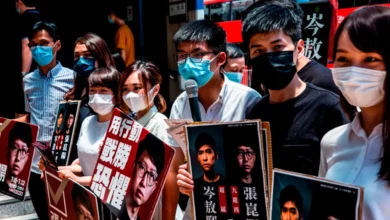I spent the worst days of my life working as a resident doctor in the department of dental surgery at the University of Cairo for a year after graduation. Corruption was rampant in the department as the sons and daughters of wealthy and powerful individuals received unfair privileges. There was also a great deal of tampering with examination results, as well as endless financial and administrative irregularities. In addition, there were serious shortcomings in doctors’ performance. Not only did doctors mistreat patients (who were forced to resort to free medical treatment), they almost committed crimes against them.
What irked me the most was the humiliating way in which professors treated doctors. Professors felt entitled to suppress their students. Everyone felt entitled to humiliate those who were below them in rank; the department head humiliated professors, who in turn humiliated assistant professors, etc. One of the professors supervising a teaching assistant’s masters thesis used to call him a “donkey.” As soon as the professor entered the department, he would yell:
-Where is the donkey? I want to see him.
At this point, the teaching assistant smiled and responded: “I am here sir.”
I remember that I reproached this teaching assistant for not standing up for himself. He told me:
-The professor is like my father.
-Your father is supposed to respect you, not humiliate you in front of people.
The teaching assistant paused and said:
-Which is better? That the professor respects me and I fail the exam, or that he insults me and grants me the M.A. ?
This was the prevailing logic in the department. “Give up your dignity in order to move ahead professionally. Bear all insults and if you cannot take it anymore, insult those below you in rank.”
The department head summoned me one day and asked me, in a condescending manner, to go to the train station and buy him a ticket to Alexandria. He had guests so I did not want to humiliate him in their presence. I left the office and called him from the nearby clinic. We had the following conversation:
-I am sorry sir but I cannot buy the ticket.
-Why not?
-Because I work as a doctor, and not as a public relations employee.
-You seem to be crazy. Find me the most senior person in the clinic.
The most senior person was a professor. I called him and he took the phone:
-Yes sir. At your service.
The professor, who holds a doctorate, went to buy the ticket. He was honored that the department head tasked him with this. I resigned from this terrible place and travelled to the United States to get a masters degree at the University of Illinois. I had to attend lectures on the science of tissues with second-year students. During a lecture, one of the lectures, a student raised her hand and said to the professor:
-I did not understand. Can you please explain again?
The professor erased what was on the board and explained again. But the student said:
-I am sorry. Can you please repeat the explanation again because I still do not understand?
The professor turned around to erase the board again, but he moved his hand, indicating impatience. The student said:
-Why are you moving your hand is if you are fed up with my stupidity? I am not stupid. If I were stupid, I would not have gotten the grades that have brought me here.
There was a great deal of silence. Coming from Cairo University, I expected a disaster, but I was surprised to see the professor smile and gently telling the student:
-I did not mean to humiliate you at all. I hope you will accept my apology. I will do everything that I can to better communicate this information.
I found myself before two contradictory logics. At Cairo University, students are suppressed and humiliated in the name of respecting their seniors. At the University of Illinois, students are treated as human beings whose dignity must be preserved. Students there have rights and responsibilities. If they perform their duties, they get their rights in return. The difference between the two logics is the difference between autocracy and democracy. Autocracy is like a cancer that spreads from the presidential palace to society as a whole. Oppressed people turn into small autocrats, thereby reproducing the oppression that they are subject to, when dealing with those who are weaker than them. Democratic leaders serve the people who elect them to office through free and fair elections. Autocratic leaders cannot respect the people because they see the people as beneath them. Hosni Mubarak did not use any titles when addressing scientists, artists, and university professors. Instead, he often ridiculed them and expected them to welcome this with gratitude. A famous journalist considered it an honor when Mubarak once hit him on the stomach in front of his colleagues and insulted him. He proudly said:
-Can you believe that the President called me (…)? He always liked to joke with me.
These humiliating relationships stand in sharp contrast to normal and respectful human relationships in democratic societies. In democratic societies, those who clean the streets share the same rights and responsibilities as presidents. Citizens address presidents with respect, but also as equals. In fact, in democracies public officials can be legally subject to harsher criticism than ordinary citizens. Criticizing public officials occurs in the context of ensuring the national interest. A British woman once approached former British Prime Minister John Major during his electoral campaign, yelling:
-Mr. Major, you are a liar.
She then threw spoiled eggs at him, hitting his face. News agencies displayed pictures of the prime minister with his face covered in spoiled eggs. The woman was arrested but was released a few hours later. The details of the release were:
“Throwing eggs at the Prime Minister does not constitute a threat on his safety or life and therefore is not considered a crime. Instead, it is a rough way of expressing one’s opinion and British democracy guarantees freedom of expression.”
The disease of autocracy always spreads from politics to ethics. In a democratic society, everyone operates within clear boundaries. In an autocratic society, on the other hand, there is a plethora of examples of odd behaviors. For instance, a law professor may put his knowledge at the service of the ruler, with no regard to people’s rights. When the ruler no longer needs him, the professor may simply join the opposition and demand the removal of the ruling regime. But as soon as there is any indication that the ruler may want the professor again, the latter rushes to offer his services.
There is also the writer who writes films and TV series condemning corruption, but who simultaneously praises Mubarak and tirelessly attempts to present an idealized view of State Security. This writer portrays police officers who have long tortured Egyptians and raped their wives as national heroes who must be respected. These ethical problems are the product of autocracy. In a democratic society, one does not need to befriend the state security apparatus or please the ruler to ensure professional success. Justice reigns in a democracy. Individuals succeed because of their talents and their work, not because of flattery and the backing of the state security apparatus.
I hope the reader has understood my intention. A few days ago, I confronted former Prime Minister Ahmed Shafiq (when he was still in office) on a show on “On TV.” The credit here goes to the courage of businessman Naguib Sawiris and my friends’ deep sense of national duty: Yursi Fouda, Rim Magued, Albert Shafiq, and Hamdi Qandil. My conversation with Shafiq was not friendly and lacked flattery. Instead, it was a serious confrontation with an important pillar of Mubarak’s corrupt regime and the official responsible for the massacre that led to the death of hundreds of Egyptians. Many Egyptians also lost their eyes to rubber bullets and thousands went missing during the same incident. I wanted to confront Shafiq and point out that he is politically responsible for these crimes. Despite this, I was keen on being polite. Instead, it was Shafiq who put down his guards and resorted to serious insults as soon as he was trapped and when it became clear that his government provided a way out to remnants of the old regime.
In a democratic system, the president serves the people. Citizens treat him with respect, but they also see him as their equal. In post-revolution Egypt, citizens will no longer bow to the president in humiliation. No citizen will be proud that the president insulted him, or hit him on the stomach. From now on, Egypt’s president must understand that Egypt has changed. He must realize that street cleaners are Egyptian citizens, who have the right to interrogate the president, point out his shortcomings, and demand further explanations of his policies. As soon as I left the studio, I received hundreds of supportive messages and phone calls, from Egyptians inside and outside of the country. I am proud of the words of these dear Egyptians. I received the greatest honor from the father of the martyr Mohamed Ramadan, the youngest martyr in Alexandria. In a letter from Ramadan’s father, I learned that Ramadan, who had not yet turned 16, was killed by a direct bullet to the head. “Thank you. When I watched you on TV, I felt that my son’s blood is in noble hands.”
Democracy is the solution.




